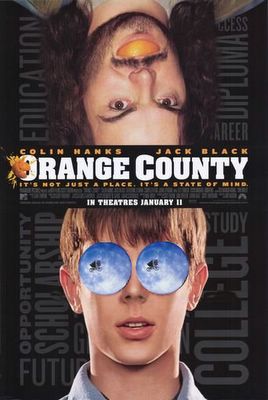Anti Flag-Burning Amendment
It seems that the House of Representatives just passed a bill to ban "desecration of the American flag."
Let me start by saying the the usual Official SobekPundit Rule of Federal Power has no application in this case. If there is a Constitutional amendment, the question of "should the federal government be doing this" becomes moot. The extreme difficulty of amending the Constitution means the issue of division of state and federal power becomes highly attenuated, because state power will necessarily come into play during the ratification process.
The most important Supreme Court case on the topic is Texas v. Johnson, 491 U.S. 397 (1989). I'm getting my summary and other key materials from Shiffrin and Choper, The First Amendment: Cases, Comments, Questions (WestGroup, 2001). In Johnson, the defendant was convicted of a Texas statute banning the desecration of the American flag, after he burned a flag to protest the Republican National Convention in Dallas. It was a pretty standard scenario - a bunch of liberal freaks, who would have an absolute hissy fit if you dared question their patriotism, basically rioted, burned a flag, and chanted "America, the red, white and blue, we spit on you." Apparently, being a liberal doesn't automatically give you a sense of cadence.
The statute under which he was convicted prohibted the intentional or knowing desecration of a public monument, a place of worship or burial, or a state or national flag. The statute defined the word "desecrate" as meaning "deface, damage, or otherwise physically mistreat in a way that the actor knows will seriously offend one or more persons likely to observe or discover his action."
The Supreme Court, per Justice Brennan, said that Texas wasn't asserting any interest other than in suppressing expression. The law was struck down as a content-based restriction. In a paragraph that highlights a point I just made just the other day about government power, the court said, "National unity as an end which government officials may foster by persuasion and example is not in question. The problem is whether under our Constitution compulsion as here employed is a permissible means for its achievement."
Four justices dissented. Rehnquist wanted to make an exception to normal First Amendment rules just for the American flag: "For more than 200 years, the American flag has occupied a unique position as a symbol of our Nation, a uniqueness that justifies a governmental prohibition."
Professor Shiffrin commented on the case: "The flag-burning prohibition is a naked attempt to smother dissent. If we must have a 'central meaning' of the first amendment, we should recognize that the dissenters - those who attack existing customs, habits, traditions and authorities - stand at the center of the first amendment and not its periphery. ... The first amendment has special regard for those who swim against the current, for those who would shake us to our foundations, for those who reject prevailing authority." Shiffrin, "The First Amendment and the Meaning of America," in Identities, Politics, and Rights 318 (Sarat & Kearns, eds. 1995).
After the Johnson decision, Congress passed the Flag Protection Act of 1989 to ban flag burning, drafted in such a way as to get around the Supreme Court's language in Johnson. The statute was challenged in U.S. v. Eichman, 496 U.S. 310 (1990). Again, the Supreme Court shot down the law, because although there was no explicit content-based restriction, it was clear that the government's interest was in supressing free expression. The same four who dissented in Johnson, Stevens, White, Rehnquist and O'Connor, dissented again.
The reaction in Congress to the Johnson decision, prior to adopting the Flag Protection Act, was interesting. The Senate passed a resolution by a margin of 97-3 expressing disappointment with the Johnson case, and the House passed a similar measure by a margin of 411-5. President Bush Sr. proposed a constitutional amendment to ban flag burning. The Flag Protection Act was, in part, an attempt by supporters of Johnson to block the amendment, because it's easier to persuade a legislator to make a law than to change the Constitution. The law passed, and by the time it was struck down in Eichman, support for an amendment was gone.
I wasn't aware that anyone was even trying to get an amendment passed until I saw Drudge's link today. According to the story, the proposed amendment has passed the House every time it has come to a vote, but it always dies in the Senate, and a quick look at the numbers suggests it will come closer than every before, but still not make it through the Senate.
The full text of the proposed amendment reads: "The Congress shall have power to prohibit the physical desecration of the flag of the United States."
I have argued in the past that one method of reigning in runaway judicial power would be a declaratory authority, an override mechanism requiring a two-thirds majority in both houses of Congress and the President's signature, to declare constitutional any law which the Supreme Court deems unconstitutional. My reasoning is this: where the united voices of two branches of a tripartite government declare that a law is in harmony with the Constitution, then the unilateral power of the third branch to override the other two branches suggests a serious imbalance.
The benefit of such a mechanism is that one Supreme Court decision no longer could screw up generations of jurisprudence just because a few justices were having a bad day. When the Supreme Court speaks, their decision is a de facto constitutionalization of whatever they want to make up. An override mechanism destroys the de facto ability of the Supreme Court to re-write the Constitution according to their personal predilections, but without the lasting effects of Supreme Court precedent. After all, just because Congress says that a given law is constitutional doesn't mean Congress can't go repeal it the very next session. Bad decisions, then, will always be more open to review, to correction, to deletion than they are now.
It has been argued in response that my proposed mechanism is functionally useless. After all, I acknowledge that two Congressional super-majorities and a President's signature are extremely hard to come by. But I bring all of this up specifically because I think the flag-burning case best illustrates the utility of my proposed judicial override mechanism. As noted, Congress is extremely hesitant to amend the Constitution. But after Johnson, in a rare display of unity, both the House and the Senate overwhelmingly rejected the Supreme Court's decision. In that case, if there had been a judicial override mechanism, it could easily have been invoked, and without the permanent alteration of the Constitution. Again, Congress could repeal or alter the law at any time - just because a bill is constitutional doesn't mean it has to be written. The only effect of the override is that when the Supreme Court says "this violates the Constitution," to co-equal branches of government could unite to say "no it doesn't."
Perhaps the flag-burning case is actually a bad illustration. In fact, I don't support such a bill, or amendment. The fact is, I think people who hate America should be given free reign to express that hatred (in a non-violent fashion) all day long, chanting whatever slogans they choose about how that government which offers them freedom of speech is so tyrannical. The best response to the flag burners, I think, is to take their pictures, publish their activities, and print their slogans as a permanent memorial of their hatred of our country. And yet I also think that the sovereign will of the people should trump my own opinions, as well as the private opinions of five out of nine justices. If Americans don't want freedom of speech, let them limit it and deserve what they get. But God protect us from a Court that denies our political freedom for the sake of our own protection.
Update: So far I haven't found any bloggers who actually support the amendment, but I'm still looking. Meanwhile, Teaparty at Les Enfants Terrible sums up my view quite succinctly: "In the short-term, it is an excellent way to determine who in this country really needs an ass-whuppin'. " Precisely.
Update: Pig thinks the amendment is the sort of thing Nazis do. Actually, Nazis burn Jews to death and invade Poland for Lebensraum. Mostly, Pig gets a link because I see so few Las Vegas bloggers.
Update: There are good reasons to oppose the amendment, and then there are bad ones. Rob asks, "Can a ratified amendment to the Constitution be itself unconstitutional, if it contradicts another part of the Constitution?" If the answer to that is "no," then I have no idea why blacks aren't slaves anymore.



















